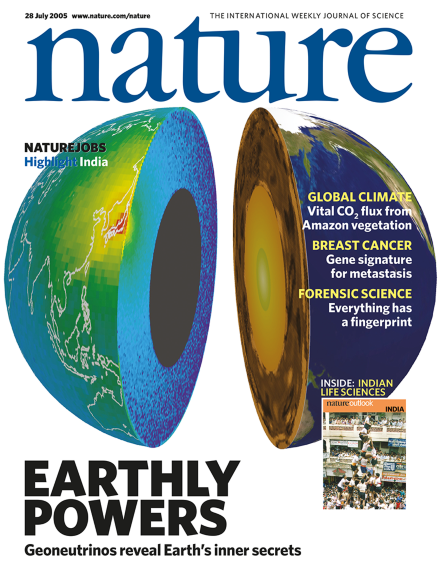Volume 436 Issue 7050, 28 July 2005
Editorial
Research Highlights
News
News in Brief
News Feature
Business
Correspondence
Books & Arts
Essay
News & Views
Brief Communication
India
-
Then and now
Nature Outlook:
-
Biotech boom
Nature Outlook:
-
Vaccines on trial
Nature Outlook:
-
India's drug tests
Nature Outlook:
-
Breathing life into biology
Nature Outlook:
-
Coming home
Nature Outlook:
-
Rivalry and red tape
Nature Outlook:
-
Among the best
Nature Outlook:
-
The coming epidemic
Nature Outlook:

